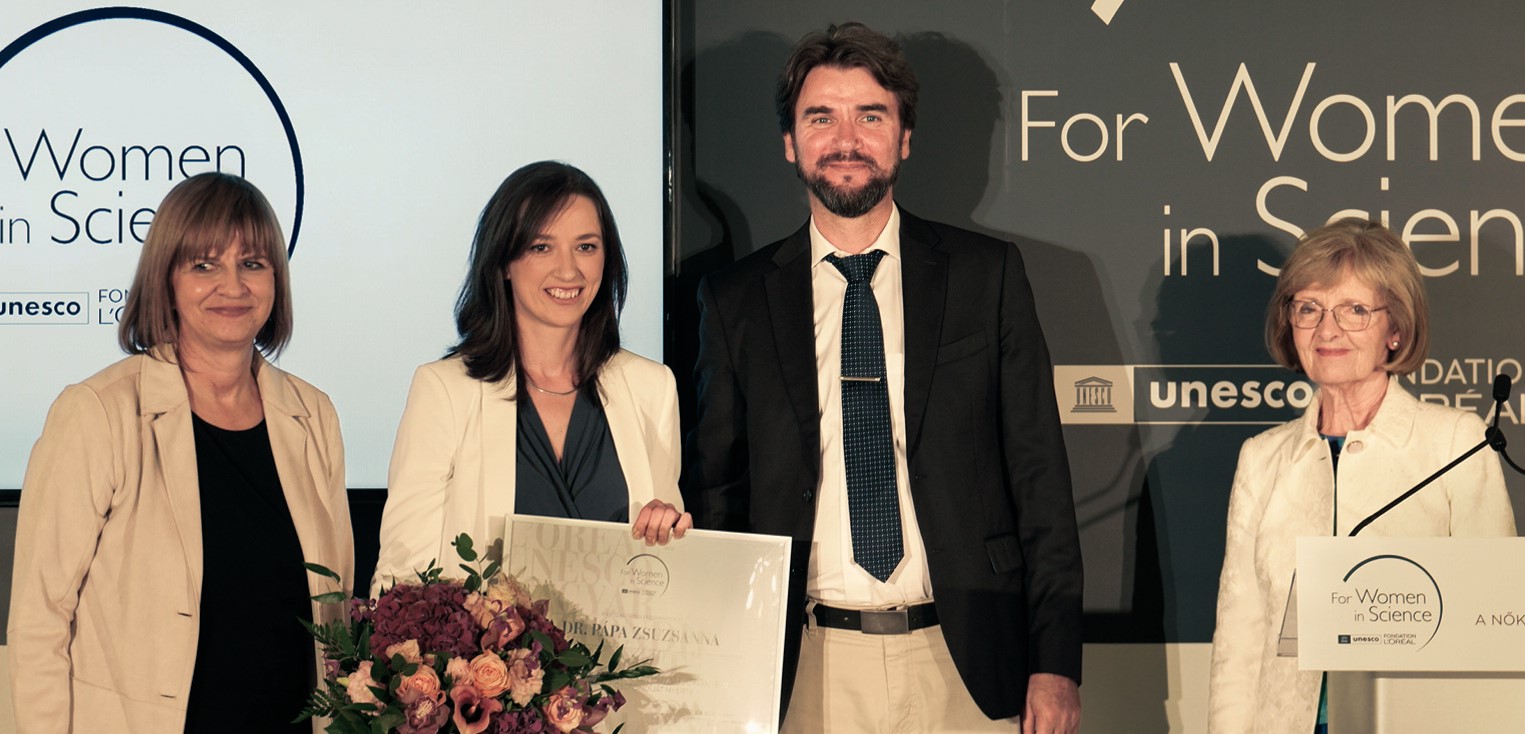"I Didn’t Plan to Become a Physicist" – An Interview with Zsuzsanna Pápa, Recipient of the L’Oréal-UNESCO For Women in Science Award
This autumn, the L’Oréal-UNESCO For Women in Science Awards were presented to three outstanding Hungarian female researchers. One of the winners is Zsuzsanna Pápa, a researcher at the ELI-ALPS Laser Research Institute and the Ultrafast Nano-Optics Momentum Research Group at the HUN-REN Wigner Research Centre for Physics. What is it like to pursue a scientific career as a woman, and how does one become one of Hungary’s most successful young researchers? When and how did she decide to become a physicist? Zsuzsanna Pápa shared her story with us.
This is not the first scientific recognition you’ve received in recent years. How did you feel when you found out you had been selected again?
I have applied for this award several times before, as it is not based on nominations. I appreciated that, in addition to funding, the award provides greater media visibility for our research. We also received communication training; It is crucial for our findings to reach a broader audience, including the lay public. Both aspects were very appealing to me. However, I noticed this year that the age limit for applicants had been extended, so I thought I was still too young to receive it. I was very surprised and incredibly happy to be selected this year.
Could you briefly summarise your research focus and the topics you are working on?
I work as a physicist and study how certain metals behave when illuminated by short flashes of light. What makes this particularly interesting is that these are special metals due to their size. They are incredibly small; I often say, to put things in perspective, that their size can be a hundredth or even a thousandth of the diameter of a human hair. They are referred to as metallic nanoparticles and thin metal films.
When illuminated by these flashes of light, metallic nanoparticles can collect light energy around themselves. One potential application in everyday life is to increase the efficiency of solar panels or facilitate chemical reactions and processes where this concentrated energy is needed in situ. In the case of thin metal films, these short flashes of light can trigger fast optical signals that could potentially replace electronic signals in computing devices in the future.
I am currently working on this, and there are many different sub-projects that need to be implemented to make these truly viable.
Why did you choose this career path? How did you become a physicist?
My path is quite unconventional because I didn't originally plan to become a physicist. I was interested in science and good at maths—I even took part in competitions—but even in high school, I didn't really know what I wanted to be when I grew up. I saw in an admissions guide that the physics programme was based on mathematics. It mentioned that, as a physicist, you could work as a data analyst, in meteorology, or in modelling various natural processes. So, I thought I'd choose physics to give myself more options later on, as it seemed too early to make such a big decision at 18.
In my second year as a physics student in Szeged, my laboratory supervisor, Judit Budai, asked if I would be interested in joining her research group. I joined, and the collaboration worked so well that I completed my BSc, MSc, and even my PhD under her supervision. During my PhD, I also started working with Péter Dombi's group, where he introduced me to nanosystems research, a field I've been working in ever since. That's how I became a physicist, and eventually, a researcher.

Source: Máté Vincze
And what is a physicist’s day-to-day life like?
An outsider might think we spend all our time sitting in the lab, tinkering away, and when evening comes, we’re still there. But it’s not like that at all. No two days are the same because there are so many different steps involved—from formulating a research question to carrying out the study, answering those questions, and publishing the results.
Of all the steps, the one I enjoy the most is when we have the experimental results and need to explain what we’ve observed and why. When we try to present the data from different perspectives, and suddenly something emerges that clarifies the picture—that is a really great feeling.
Any advice for those considering a similar career but still have time to decide?
As I mentioned, I decided to study physics relatively late—so late, in fact, that I didn’t even take an advanced-level exam in physics, as I already had enough points to be accepted without it. Of course, it’s very important to understand the subject, and it’s equally essential to approach it with curiosity.
Nowadays, much of the scientific literature is in English, and papers and results are published in English, making a good command of the language essential. Computational solutions—such as programming and data analysis—are also playing an increasingly important role in research, and logical thinking is equally important.
Having achieved significant results and won prestigious awards, what is the next step you'd like to take?
In recent years, I have been involved in successful research projects, and we have published strong results. The next step for me would be to apply for international grants.

